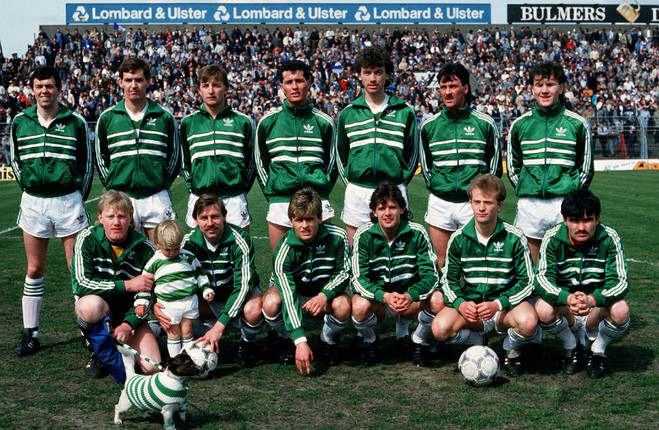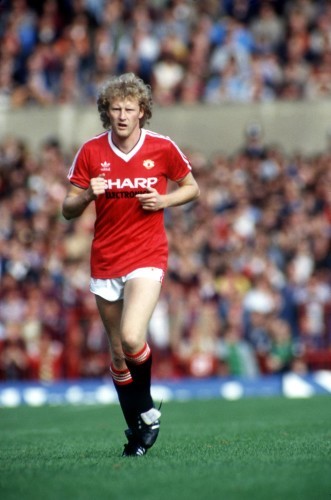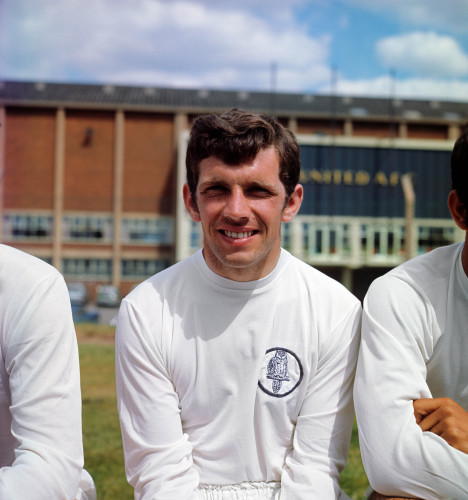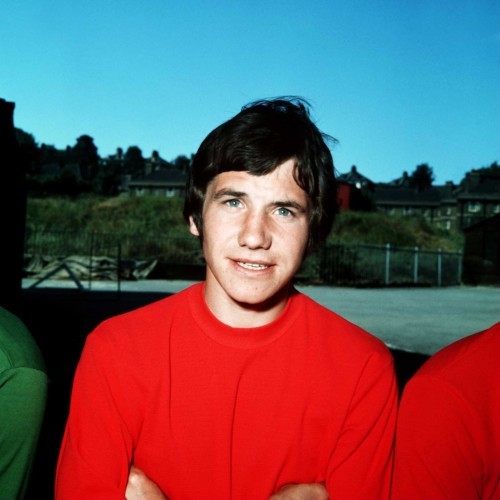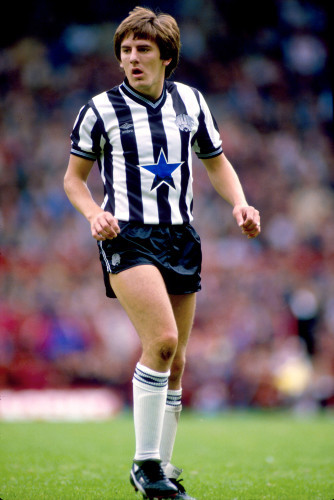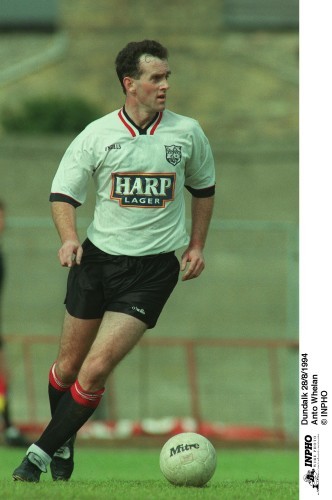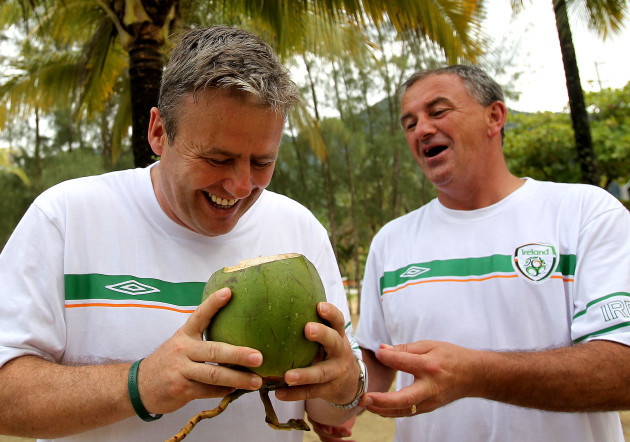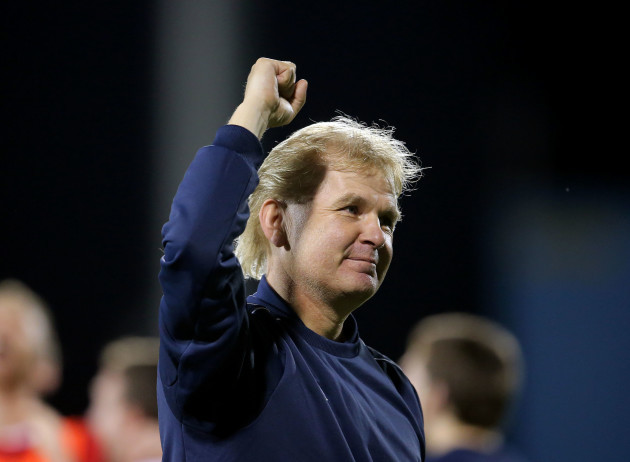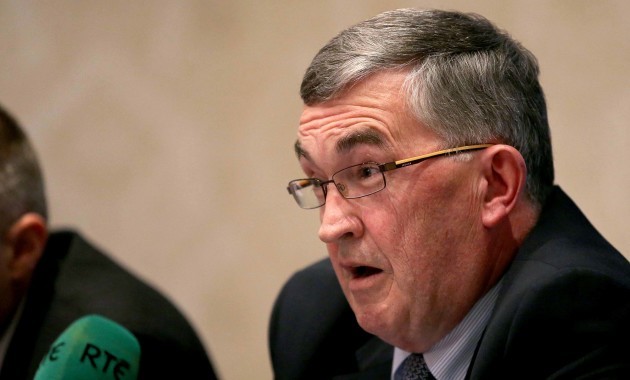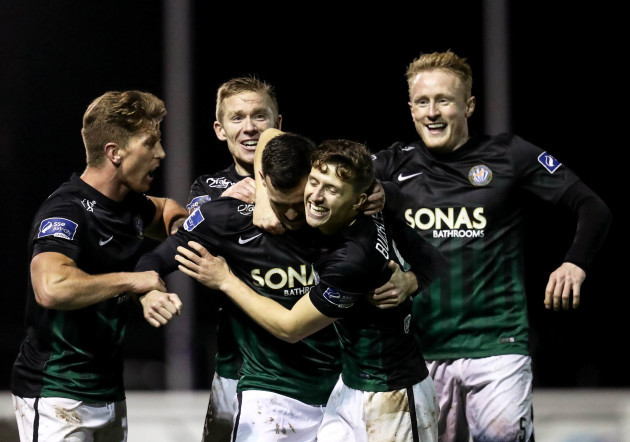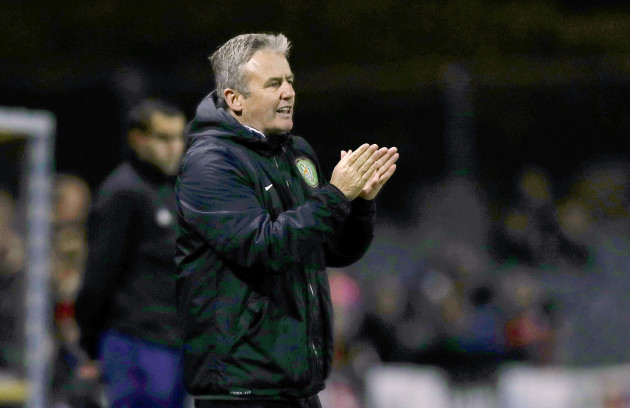HARRY KENNY GREW up steeped in football.
Long before he had established himself as a League of Ireland coach or been part of the famous Shamrock Rovers ‘four-in-a-row’ side, he was immersed in the game.
Hughie Gannon, his father in law, won an FAI Cup with Shamrock Rovers in 1955, while his brother Marc also had a successful career in the League of Ireland, making well over 200 appearances in three spells with the Hoops.
I’m one of nine brothers,” he tells The42. “We grew up on the Navan Road. My dad formed a local club with a couple of other gentlemen – Kinvara Boys F.C.
“You can imagine (what) a house with nine boys (is like).”
Kenny grew in a world far removed from the Ireland of today, but while he may not have had the material wealth that many youngsters enjoy now, he insists his experiences were all the richer for it.
We didn’t have much in those days yet we had everything,” he says
“You had the football, and we were down on the local green. I don’t want to sound too corny, but it really was a group of lads with jumpers for goalposts, beating the crap out of each other, trying to score goals, that type of thing
My dad, with some others lads, put a club together, and we all ended joining teams and playing properly then.”
When he is not managing Bray Wanderers, Kenny is working with young footballers, running an FAI Player Development Course. He concedes their experience of learning to play the sport while growing up is entirely different to his, with modern youngsters often having the luxury of top-notch facilities as opposed to ‘jumpers for goalposts’.
It’s more structured now,” he explains. “There are more people who have coaching badges and there are definitely more clubs. They’re starting them so much younger. They’re starting them at five, six or seven. Saturday or Sunday morning, you’d often see them with all the different clubs.
“They’re getting the right start, they’re getting well coached. When we were playing, there were no jerseys or anything. Everyone was just running around. There were no bibs — it was probably a good thing that you had to be watching where you were passing the ball, looking at faces, (seeing) who was on whose team.
The coaching is very good and it’s good to see people getting their badges and stuff, coaching people in the right way and showing kids how to kick the ball.
“But sometimes, coaches get carried away and over-coach kids instead of just letting them play, letting them make their own mistakes and going for it. It’s at a later age that you should be coaching them.”
For Kenny, it was his father rather than any coach who probably had the single biggest influence on his career.
He had lots of sons to be dealing with, bringing fellas to different places on a Saturday and Sunday. He was like a taxi driver,” he recalls. “I might have a match in Bushy Park while one of my brothers would have a match elsewhere and he was trying to manage a couple of teams himself with Kinvara.
“He was a great man and encouraged us all the way. I think he knew himself that football was good for anyone growing up. It keeps you out of trouble, fit and well-grounded in life.”
At a young age, Kenny discovered that he possessed what the Bray boss modestly describes as a “small bit of talent”.
Having started out with his father’s team, Kinvara, Kenny subsequently agreed to join Cabra outfit Villa United, who were playing in the top-tier of the Dublin District Schoolboys League at the time.
My dad encouraged me to go up there. It was a bigger challenge playing with better players.
“Their claim to fame would be Ashley Grimes, the ex-Man United player and (current head coach of the Ireland U19 women’s team) Davey Connell, who would have played for Dundalk. There’s not too many more that came out of Villa.
They were great times up in Cabra for the few years before Rovers came along.”
As Liverpool legend Jamie Carragher once wryly put it: “There are only two things for a full-back. You’re either a failed winger or a failed centre-back.”
And so it proved with Kenny, who started out as a centre-half but would go on to establish himself as a right back in the League of Ireland.
In my earlier days, I would have played centre-back. I was a bit too small to stay there, so I shifted across a little bit to full-back.
“But when you were playing at schoolboy level, 13 or 14, that sort of age group, you were playing anywhere in midfield and all over the place, which was a good grounding and you get to know different positions.”
Moreover, it was an Irish footballing legend who gave Kenny his big break in the game. After a hugely successful career in England primarily with Leeds United, John Giles had returned home to manage Shamrock Rovers in 1977.
Giles had big plans for the Dublin club, who would turn professional under his watch. All going well, he hoped Rovers would not just dominate the league, but also seriously compete in Europe against top sides.
At 15, I left school after the old Inter Cert, now the Junior Cert, and went to Rovers,” Kenny recalls. “John Giles came to the house, he’d just come back from West Brom and he wanted a full-time set-up here.
“He wanted to get a group of young lads together, the best in the country to go and compete in Europe. It was a fantastic idea at the time, there were some fantastic characters and ex-Ireland internationals. Paddy Mulligan, Giles himself, the bauld Eamon Dunphy, Ray Treacy, Jonny Fullam. It shows how old I’m getting when I think of all those names.
Pierce O’Leary, the likes of (future Liverpool player) Jim Beglin was full-time. Alan Campbell, Bucko (Liam Buckley) was there as well. There were lots of good players and you had to have your wits about you when you were training in the morning. Giles himself was a tough taskmaster, he wanted things done right and wanted the game played right, to pass the ball and that sort of thing.
“(Giles) was a huge influence, he would probably be the one I’d point to when people ask that question (of who influenced me as a coach), despite Rovers having all that success with the great four-in-a-row team with Jim McLaughlin. I’d always go back to when I was with Johnny Giles for the five or six years when I was full-time and playing in that team he had. I thought he was fantastic, he started me out on a pro career.”
Ultimately, however, the success they had been anticipating did not come in the six years Giles was manager of Shamrock Rovers. Now a football pundit, reflecting on the period in 2015, Giles said his lofty ideals provoked “resentment” from certain people in the League of Ireland.
Kenny cites a lack of finances as another reason why the Leeds legend’s best-laid plans went awry.
Maybe in hindsight, he had too many young lads playing in the league, because it was tough in those days and the pitches weren’t great or conducive to good football.
“While he won a cup in ’78, there wasn’t too much won after that, it wasn’t really happening and I think the old finances were running out to maintain a full-time set-up, so that all fell by the wayside and the club went part-time in the early ’80s. I don’t think the part-time set-up was for him and he just moved on.
He definitely was ahead of his time and the idea was fantastic that we could produce all these good players, sell the odd player and get a few bob in, keep the whole thing going.
“One or two did go (abroad), Jim Beglin went off to Liverpool and Pierce O’Leary went for good money at the time to Vancouver Whitecaps.
It just wasn’t going to work in Ireland — the crowds weren’t there and the finances weren’t there. In saying that, there are people now doing a good job with a full-time set-up — Stephen Kenny at Dundalk and Limerick are full-time. They’re keeping it all afloat — they’ve obviously got good financial backing and good structures in place and they’re able to work it well.
“It should have worked because everyone else was part-time — we were the only full-time set-up.
In saying that, there were about 20 young lads who were full-time and we also had part-time lads coming in during the evening time that would make up the team on the weekend.
“I don’t know how he really worked that, because they would train in the evenings and we would train in the mornings. So I’d say that was difficult to manage too.”
Amid this unique environment, Kenny initially thrived. He made his debut at 16 in a 4-0 win over Cork Celtic and by his second full campaign with the club, the youngster was named as Rovers’ Player of the Year, despite the presence of more illustrious names in the team.
To play at 16 in those days with some hatchet men around the place was great,” he says. “In saying that, I had loads of protection. We had great experience. I was playing at right-back, Paddy Mulligan was left-back and Ray Treacy was up front. Johnny Fullam was in at centre-back with Noel Synnott, they’re all Irish internationals.
“You had Johnny Giles himself playing in the middle of the pitch, conducting everything and being really hard on you with passing and controlling the ball, and all those sort of things. So I had a fantastic grounding just by playing. There wasn’t much coaching in those days, you were just expected to know the position.
There were a couple of pointers to keep you in check and show you where to go… Those fellas kept you really right — they were very good to me and pointed me in the right direction. That’s how I managed to get along at a very young age in a very tough league at the time.”
And while many young players may have been intimidated by the presence of such distinguished players, Kenny was galvanised with these experienced footballers for company.
You wanted to do well. They were tough men, but they were great, they encouraged you, helped you off the pitch and put you on the right pathway.
“They were great in training, very demanding, wanted everything done right, they had all come back from England with very good careers. The demands were huge, but you welcomed that. I was very dedicated — I ate, slept and drank football at the time. That’s the way those boys were.”
Yet after four extremely encouraging years with the Hoops, the young full-back’s progress was curtailed instantaneously on 11 October 1981 during a game at Rovers’ then home of Milltown.
I broke my leg,” he recalls. “It was really tough to take. I remember it clearly to this day. We were playing Sligo Rovers and it was a young man at right back marking a tough, seasoned pro at outside left.
“I just got done in a tackle and you’ve a plaster up to your thigh, that sort of thing. It’s not like nowadays where you can recover more quickly.
I won’t say it was run-of-the-mill stuff, but serious injuries were more common back then, so you just had to get on with it. There wasn’t too much sympathy. It was just putting a timeframe on (the recovery) and trying to move on.
“Some of those injuries at the time were career-ending. I was hoping that wouldn’t happen to me, I was determined to get back and I was delighted that I did. I was still full-time at Rovers. I was able to go in, build the leg back up, do the weights and all that, so it was good in that sense that it was full-time.”
In a bid to regain fitness in time for the following season, Kenny moved on loan to the Vancouver Whitecaps — a Canadian team who played summer football and were also managed by Giles (who coached both teams simultaneously).
While in Canada, he played alongside some notable names, including future Newcastle and Liverpool star Peter Beardsley, former Leeds midfielder Terry Yorath and legendary Everton defender Roger Kenyon.
Yet Kenny was not experiencing much luck during this period, and he broke his leg again within weeks of joining the North American Soccer League team.
It took me the guts of a year and a half to get over the two breaks. I was around 18 years of age and there was talk of getting a move to the UK, but that’s life and that’s football.
“In one way, I take the positives out of it that I had a fantastic career after the leg break, playing part-time with Rovers and trying to work as well at the same time, so it worked out well for me.”
Following Giles’ departure in 1983, Kenny and Rovers belatedly fulfilled their potential domestically. Under the guidance of Derryman Jim McLaughlin, they would win a phenomenal four consecutive League of Ireland titles, starting in the 1983-84 campaign and ending with the 1986-87 triumph. During this era, they would also win three FAI Cups on the bounce between 1985 and 1987.
Jim was tough, he just brought in all the best players,” Kenny says. “He handpicked lads from Dundalk, Galway, all these different places and just put them together. It’s a good trait in itself, to be able to bring in the best players. He changed the whole thing and brought in a full squad that had been around League of Ireland a few years and it just clicked for him.
“It was difficult for me in that in the first year, I was one of ‘Giles’ boys’ if you like and he wanted his own team.
He signed a full back, Anto Whelan, who was ex-Man United. I struggled to get into the team at the start. Once I got established, I just took off then. I had to win him over a little bit more than other lads, because obviously he signed them and so was going to play them.
“They were great memories, cup finals, playing in Europe every year, winning leagues, it was great times for the four-in-a-row.
I always felt the last (league win) was the best one. I scored in the cup final against Dundalk — that’s the last time Rovers won the cup — 30 years ago.
“Man United and Arsenal used to play us in pre-season games. We beat United and Arsenal. Arsenal got so upset that they wanted to play us at the end of the season as well.
Milltown was packed, it was a fabulous pitch with some great European nights there. They were brilliant memories in what was a brilliant ground in Glenmalure.”
After 13 years and 300 competitive appearances with Rovers, Kenny ultimately left the club to join Drogheda in 1991. Though the experienced defender would not retire for another four years, he now concedes it was the beginning of the end as he struggled to make an impact with the Louth-based club.
I was picking up old injuries and I found it difficult to get over them,” he remembers.
“Rovers had gone upside down and back to front in the meantime with different owners. It wasn’t great. So I went to a guy who was on the coaching staff at Rovers a couple of years prior to that. He just asked me to go along, be an experienced player, help lads come through at Drogheda and that sort of thing.
It wasn’t too clever when I was there. I felt I didn’t do myself justice because I was picking up injuries and stuff. So I cut the contract short at Drogheda (in 1993) and moved on.”
It was in the Northern Irish Football League where Kenny would finish his career, with brief stints at Crusaders and Newry Town. But despite the different surroundings, some familiar faces would accompany him up there.
We used to go up for games in (former Shamrock Rovers, Bohemians and Dundalk player) Tony O’Connell’s Mercedes. There were six of us in the car.
“We used to go up the Ashbourne Road in the middle of nowhere.
(Current Athlone manager) Roddy Collins, a big character, always sat in the front seat. Myself, (former Drogheda and Dundalk player) Martin Murray, (ex-Dundalk defender) Robbie Lawlor, and Derek Carroll (previously of Bohemians and Athlone) were in the back.
“Roddy had been taken off the previous week and he hadn’t been playing too well. Tony was assistant manager and also president of Bohs at the time.
We’re going up through Ashbourne, Roddy’s absolutely badgering him all the way up. ‘Am I playing today Tony? I’m not wasting my Saturday going up here.’ Absolutely torturing him.
“We’re in the back, having a right giggle.
Tony got so fed up with him. He said ‘look Roddy, I’m not the bloody manager, you’ll have to wait until you get up there’.
“Roddy said ‘I’m not waiting, I don’t want to waste my day’. Tony got so fed up with him that he just said: ‘Look Roddy, I don’t think you’re starting today,’ so the next traffic lights, Roddy just opened the door in the middle of nowhere and got off. We went on up without Roddy, it was great.
There were a million and one clubs up there so we seemed to be going up every Saturday and Wednesday for the whole season. We won the odd cup, it was a good time.
“My career was coming to an end, but it was a nice and enjoyable year.”
While footballers who retire often struggle to adapt to the changes that a level without high-level sport prompts, Kenny was relatively well set in this regard.
In stark contrast with the top stars in the League of Ireland today, some of whom are playing full-time, when Kenny had finished up as a player, he had already been holding down a steady job for years.
After Gilesy left, we went part-time and Shamrock Rovers were looking at 15 to 20 lads that have nothing basically and are used to full-time football.
“So they got us all a job. I got a job in Quinnsworth, which is now Tesco, just as a sales assistant in Lifestyle Sports. I worked my way up there, did really well business-wise. I became a shareholder and we ended up selling the business, so we did reasonably well.
Trying to put (the job and football) together was tough going. The lads who were doing it would just go from work to training, it was a career outside of football and everything went well thank god.”
Yet Kenny also retained aspirations to manage in the League of Ireland, and he slowly made progress on this front. He started working for his coaching badges prior to finishing up playing, before starting out trying to gain some experience as a coach in junior football. First, he re-joined his local side, Kinvara Boys, as manager, before returning Phoenix FC Navan Road in the Leinster Senior League.
I was doing all the coaching there and the job was getting very demanding,” he says. “I was going well as a buyer for Lifestyle Sports, which took up a lot of time and I was away a fair bit. So in one sense, I was happy to be involved in junior football, it wasn’t as demanding as the national league, it helped in that sense.
By 2010, he was working with former Rovers teammate Noel King as a coach for the Ireland Women’s U17 team, who qualified for the 2010 World Cup.
Three years later, with no work-intensive job outside of football to worry about anymore, an opportunity to return to the League of Ireland finally arose, as another ex-teammate, Liam Buckley, offered him the assistant manager’s job at St Pat’s. Though it was a fairly brief stint at Richmond Park, it could not have gone much better, with the Saints claiming a first league title since 1999.
Trevor Croly had left Pat’s to go up to manage Rovers and I knew Liam from earlier days from playing with him. He just asked me would I like to get into the national league and it was something I wanted to do. I had my A licence at the time and said: ‘Yeah I’ll have a go at that.’
Having been used to the more casual atmosphere of junior football, Kenny admits adapting to the much higher demands of Premier Division football was far from straightforward.
I found it tough. The League of Ireland lads are demanding, they want the best, they want to be winning things.
“It’s a different ball game from coaching junior players. You don’t know what you have from one night to the next with junior players in relation to numbers. They’re just playing for the enjoyment, but it gets more serious when the lads are playing for a few bob.
You have to think in more detail about sessions — that was tough going and it was my first time at it as well.
“Winning the league helped. We went on this fabulous run and conceded very few goals. So I’d like to think I played some part in it. And there were some really good players — Kenny Browne, currently with Waterford, Greg Bolger, Christy Fagan, there were really lots of good players there. Bermo (Ian Bermingham) was there.
To be quite honest, there wasn’t much coaching on that team. You were just keeping them ticking over and fellas knew their jobs really.”
After the short but memorable experience at Pat’s, Kenny linked up with Mick Cooke at Athlone Town ahead of the 2014 season, although in contrast with his previous experience, this spell proved disastrous. Consequently, owing to 10 defeats in their opening 10 Premier Division games, the struggling club parted ways with Cooke and Kenny.
Just over a year later, however, the pair were back as manager and assistant respectively at Bray.
They were down around the bottom, we saved them from relegation (in 2015), did a reasonable job,” Kenny recalls. “Then the next season, Mick signed a complete new panel of players. They were decent players, but in the first seven or eight games, we couldn’t buy a win.
“The club had invested in these players and that wasn’t going so well, so they relieved Mick of his duties and asked me to take over the reins for a little while. I ended up getting a few results, getting a few new players in July and a brilliant run put them out of relegation trouble — we finished sixth (in 2016).
It was fantastic for my first go at managing in the league. I was after getting the experience with Mick and Bucko, getting to know players in the league, which is what it is all about. So I was itching for (a chance as a manager) and Mick knew that. I was just getting another year’s learning under my belt before trying to get a job.
“It wasn’t nice for Mick to get the sack and there was no problem with me taking the job after he had gone. I’m still friends with him to this day.
When I took over, things went well for me. The players were great and the lads that came in during the window made a huge difference to help us achieve (what we did).”
This season has proved less positive, however, despite the club looking set to improve on last year’s final position, with a fifth-place finish increasingly likely as the season draws to a close.
Bray’s start to the 2017 campaign, in particular, was hugely promising, as they were up challenging Dundalk for second spot initially — a scarcely believable feat for a club whose players, unlike the Lilywhites, are part-time.
Yet this dream start would suddenly turn into a nightmare last June. At half-time during a match against Stephen Kenny’s side, chairman Denis O’Connor issued an ominous statement lamenting Bray’s poor attendances and suggesting the club’s finances were in a perilous state.
After this worrying development, the situation escalated, and at one point, there were doubts as to whether funds would be available to pay players for the remainder of the season. Ultimately, the club announced that they had secured enough money to function adequately for the foreseeable future, but this period of turmoil clearly had an impact on the players, as Kenny admits.
It definitely overshadows (the encouraging results on the field). It’s been an absolutely crazy season. I was looking forward to it, because I was after signing loads of good players, invested a few quid in fresh faces and we all wanted to try to get into Europe. But it hasn’t really worked out that way.
“We started fantastically. We had been up around third or fourth in a European spot. But the July thing came along and the investment was threatened to be pulled. Other clubs were onto the lads — it was right during the transfer window, they were really difficult times.
I don’t think (Pep) Guardiola would have got a result through that July period. We actually didn’t win a match while all that stuff was going on, the training wasn’t great, it was very difficult at the time.
“In saying that, even though the investment was threatened, there was no one left short any money. I’d have to say that categorically. But the whole uncertainty sort of screwed me and the coaching staff up. Obviously, the player’s heads were getting turned by other clubs. It’s their livelihood as well, they were worried about the wages for the end of that month.
Things weren’t good at the time and it’s hard to keep the players focused on the games in hand. The results tell their own story.
“Then we got over that, settled down, started getting a few results and the really good thing about it is that we have been still up challenging for Europe. We held firm and it’s a testament to the lads for getting their heads back firm and going again.
The investigation for the Waterford match is still ongoing and again, that’s hard to take. The job really is hard with all that other stuff going on in the background. But they’re good lads, they love their football, they want to be doing well and the last couple of weeks have been pretty good, results have been okay.”
Even before the news of Bray’s financial difficulties was made public, some critics expressed concern that they were spending beyond their means. Did Kenny ever suspect the club was on the brink of a potential catastrophe in the weeks or months leading up to when the dire news officially broke?
It was definitely out of the blue to me,” he says. “I know the investor, he’s from up around my area. He’s mad into the football. There was another guy that was supposed to come in and help him with the investment and that never materialised, so he was left holding the baby and didn’t want to carry the can for the total expense of running a national league club.
“He was threatening to leave if he didn’t get help and support with the finances for the rest of the season, so that’s where all that came from.
But I certainly didn’t see it coming, because I’d met the investors, everything was grand, no problem, we signed up the players in good faith that everything would be fine. I was shocked, disappointed and sick to the stomach over it, because we had been going really well.
“We were very close to Dundalk — there was a point or two between us. When that comes along, you feel as though the rug is pulled from under you, and that’s life.
You learn from experience and move on. If it happens again, I’d be a bit more prepared for it.”
Moreover, despite achieving relative success on the field, Kenny recently announced he would be stepping down as Bray boss once the current campaign finishes.
People will point to all the off-the-field stuff, but I’ve really enjoyed my time at Bray. I was grateful for the experience and the opportunity to manage in the league.
“In the first season, we went from bottom to sixth position and have been going well in the second season.
So I had a good time there, worked with some very good players, that’s what football is all about. It’s about winning and watching good players play decent football.”
In the immediate future, Kenny will be focusing on his FAI role, but says he would be open to a return to management in the League of Ireland if the right offer came along.
It’d have to be the right one,” he stresses. “I want to really focus on the FAI role.
“I work with 25 young lads at the moment, I do a bit of coaching day-to-day and try to help them with their careers. A few lads are back from England, a few lads have aspirations to go to England and get a bit a bit of education here in a project I run in Clondalkin.
It’s a very good project, it’s great for young lads. It’s very similar to a full-time programme in the UK. Something I want to do is work full-time in football, so I’m enjoying the job as well.”
And finally, given that he is accustomed to working with young players, what’s the best piece of advice he could offer an aspiring footballer?
It’s like in any sport, there’s no magic formula to it. I was a sort of self-made player and I always go back to being dedicated and having the right attitude.
“Practice what your weak on and practice on your strengths to improve them better than the next fella. It’s all about practice. You listen to Rory McIlroy and all these great sportsmen and they talk about practice.
You should be doing the extra bit when you’re training. That just gives you the edge over the next fella beside you. You have to have a dedication if you really want to do it. You’ve got to stay in every evening.
“You’ve got to be eating and drinking the right things and listening to the experienced people who have been training for years, like the strength and conditioning lads now in the game. You’ll listen to them. They studied the science for four years, you just (have to) gain knowledge from everyone.
Like Liam O’Brien was saying to our lads, listen to him — he’s had a fantastic career, playing for Newcastle, Man United and Ireland. Why wouldn’t you tap into his experience? So keep getting the advice, keep working hard and keep your attitude right is what I would say.”
With Kenny having won every domestic honour in the game as well as getting inducted into the Shamrock Rovers Hall of Fame in 2007, you can be sure it is sound advice from a man who knows football inside out, having been surrounded by it, in one form or another, for the past 55 years.
Subscribe to The42 podcasts here:
